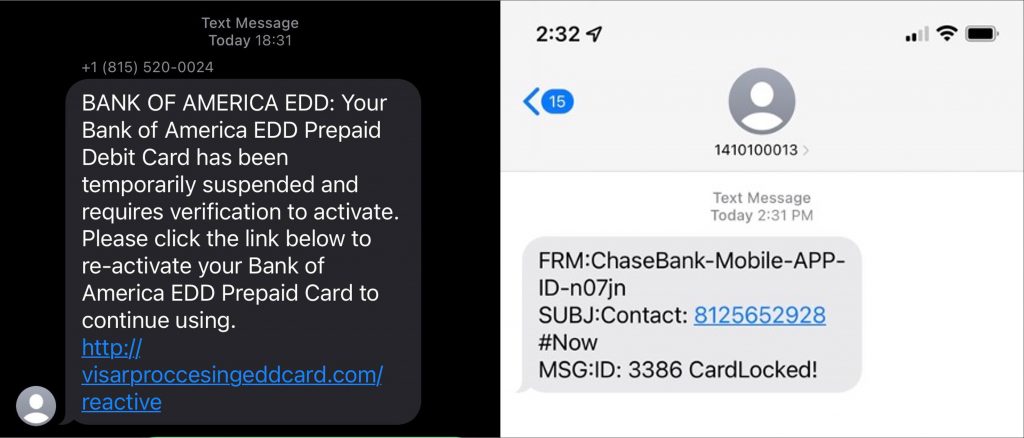Last Updated on March 31, 2023
Stop Spam Text Messages
Scammers who exploit the use of text messages (SMS) to install malicious malware are promoting unwanted ads that can eventually lead to identity theft. According to the FBI’s Internet Crime Complaint Center report, a form of cyber fraud called “Smishing” cost victims across the USA over $54 million in 2020. Read through this guide to learn more about these spam text messages.
Top 4 Most Common Smishing Attacks
“Urgent” Messages About Your Credit Card or Bank Account

Text messages ask you to change your PIN or password because your account is locked or a fraudulent activity has occurred. In reality, hackers are “verifying” your identity to obtain personal information.
Notifications That You’ve Won Something

It sounds suspicious if you’ve won something from a contest or raffle that you didn’t enter — even more so when you have to enter personal information to obtain the prize.
Fake Surveys

Real surveys are prompted by something you actually did with a retail or online store. Be wary if ever you receive a text message asking to answer a survey through a website you do not recognize.
Fake Messages From Trusted Brands

Scammers are now taking advantage of trusted brands. Be vigilant! A simple misspelled word can help identify a smishing attack.
5 Do’s and Don’ts for Spam Text Messages
1. Stop sharing your phone number:
Be vigilant in giving out your phone number. Check to see if it is required when doing online activities such as online shopping, subscribing to online services or when scheduling an appointment. One good question: “Do I trust the [company, service, etc.] to protect my privacy?”
2. Don’t reply or respond to messages asking for information:
Directly replying to such messages can lead the scammers to ask for your personal information or lead you to install a malicious app unknowingly.
3. Don’t click on any links:
Clicking links from spam text messages is how scammers can attain your personal information. Think before you click!
Download Trend Micro Mobile Security today — read text messages and browse the internet with peace of mind using these features:
- Email Defender — Scan and identify fake text messages and text scams. Check your SMS/MMS messages for security threats.
- Web Guard — Automatically avoid malicious, fraudulent, and potentially dangerous websites!
- Privacy Scanner — Warns you about apps that could expose your personal information.
- PayGuard Mobile — Added security to your banking and financial apps. Guards against fake banking, financial and shopping apps that trick you into giving up account and personal information.
Click on the button below to download Trend Micro Mobile Security:
4. Block Spam Texts Through Your Phone Settings
For Android:
Note: The steps may vary depending on the phone brand and model.
- Select the text message you received
- On the upper-right, tap the dots
- Select Blocklist or Block Sender
For iOS:
- Go to your phone Settings then tap Messages
- Tap on Blocked then tap “Add New”
- Select the contact or number that you want to add to the block list
- After selecting, tap “Done”: you won’t receive any messages from that contact or number.
5. Report Spam Text Messages
For North America:
Here is a list of the known mobile carriers that support reporting of spam texts:
- AT&T
- Sprint
- T-Mobile
- Verizon
To report, you can forward spam text messages to 7726 or SPAM to help investigate and prevent other customers from receiving it.
For Australia:
Report any kind of spam to Scamwatch.
We hope this article has been of use/interest to you. If so, please do SHARE with friends and family to help keep the online community safe and secure.
